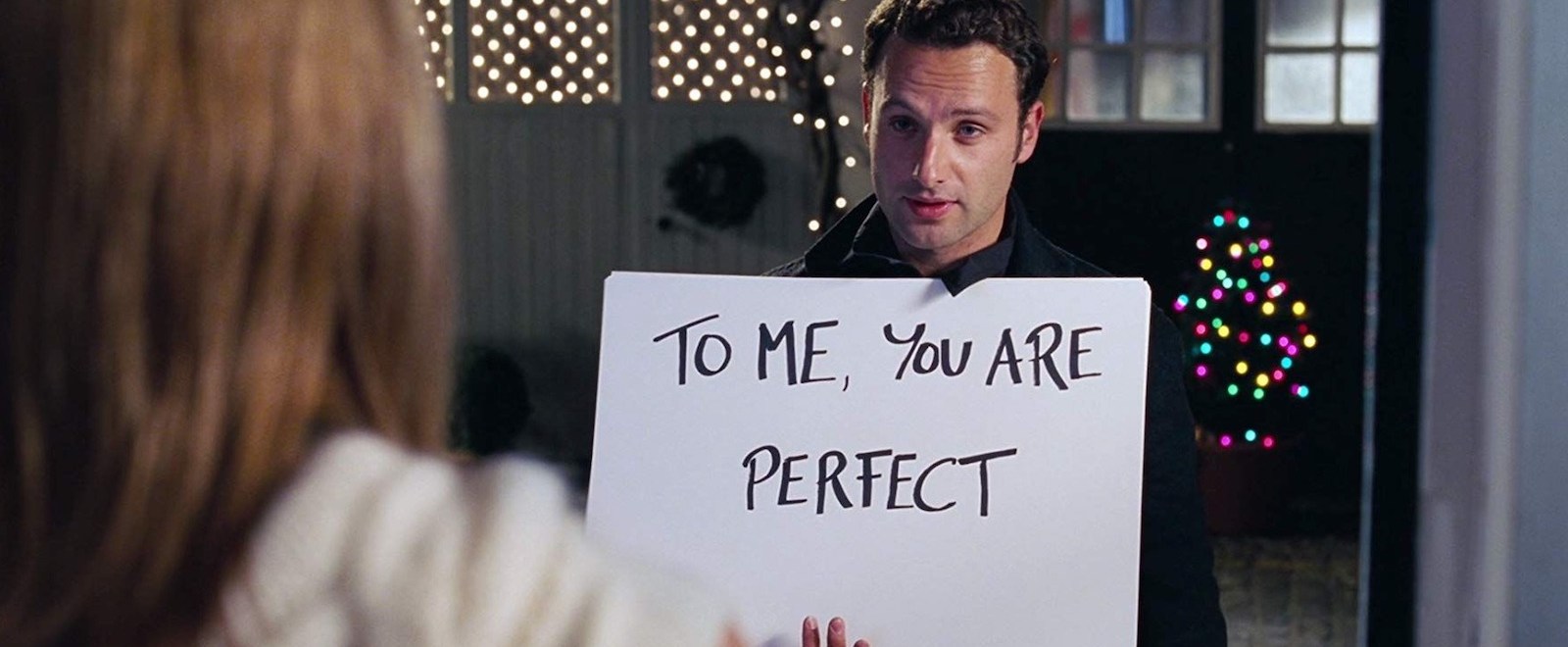
Looking back, it makes a lot of sense why I didn’t see Love Actually in theaters. Love Actually was released in theaters in November of 2003 and, at the time, I was living in St. Louis and I was going through a terrible breakup and the last thing I would want to do at the time is buy one ticket to a movie called “Love Actually.” A breakup that was bad enough that, a few months later, I decided, “Hey, maybe I should move to New York City. That sounds like a good idea.” (I still live here.) So, anyway, my point is that I was preoccupied during its theatrical run and then pretty busy during its initial home video blitz.
The thing is, I don’t remember Love Actually becoming “a thing” until later. It was a modest hit in the United States (and a pretty massive hit worldwide), but it’s always weird when you realize you missed out on something that seems pretty universally accepted as something everyone has seen. There are few movies like that. You know, where people don’t even ask if you’ve seen the movie. It is just assumed. They just go into their references and then I have to sit there and pretend I get them.
To be fair, I’ve seen bits and pieces on cable. It’s almost impossible to avoid Love Actually completely. Obviously, I’m aware of the Keira Knightley and Andrew Lincoln scene at the door, which has been parodied one million times, including this year in a cell phone commercial starring the two leads of Scrubs. Here are two funny things about that scene. The first is I didn’t understand the context. I had no idea Andrew Lincoln plays a guy in love with his best friend’s wife. (I have been warned by people who love this movie to not get too deep into this strange plot point here. Summing it up with, “We already know.” Fair enough.)
The other thing I assumed was this was the dramatic last scene of Love Actually. It is not. After this scene there are still 45 minutes left in the movie. But here’s the thing I realized about what I think makes Love Actually addictive. The entire movie is composed of “dramatic last scenes.”
So before we get into that and you start yelling at me on social media, I am not here to make fun of Love Actually. I’m actually embarrassed it took me this long to watch it. And no one forced me to watch Love Actually. A few days ago I had some time to kill and just watched it by myself. As I watched, it’s one of those things where I realized two things: One, yes, as I mentioned, I get why this is so popular. And two, this is not the movie I quite thought it was and, free from its edited cable run, this movie has a surprising amount of nudity for no real reason. I am not judging that aspect at all other than to say I didn’t realize this beloved holiday classic would be on par, nudity-wise, with popping in Porky’s. (Speaking of holiday classics, it never fails to delight me that the director of A Christmas Story also directed two Porky’s movies.)
Okay, so, back to the point that Love Actually is made up of nonstop dramatic endings. Think of almost, literally, every scene in this movie. If the credits played right after, would you be at all surprised? Obviously, when Mark reveals his love for Juliet through written out cue cards, the credits could run right after that and it would feel right. Actually, go back to one of the first scenes in the movie, Juliet and Peter’s (Chiwetel Ejiofor; literally everyone is in this movie, somehow) wedding. When “All You Need is Love” starts playing, that’s a dramatic ending! The credits could start playing right there and I would have thought, “well that’s nice.” When Hugh Grant’s David finally tells off the President of the United States (Billy Bob Thornton) to a round of applause, the credits could roll. I truly believe this was Richard Curtis’s intention. “People love emotional dramatic endings, what if we made an entire movie is only that?” It’s like that muffin-top episode of Seinfeld. Why mess around with the parts people don’t want?
(Speaking of parts you don’t want, yeah I could have done without a couple of the storylines that aren’t as exciting. And, again, I was warned not to focus too much on that either and that came with the same caveat, “We already know.” Fair enough. Though I have noticed people seem to disagree on what their least favorite storyline is. Though everyone agrees Bill Nighy rules.)
Anyway, yes, that’s finally over for me. I’ve now seen Love Actually. I will now understand all your references and the deeper meaning of current T-Mobile commercials. Also, Bill Nighy as Billy Mack is the best part of this movie and I kind of wish the whole thing had just been about him. In fact, I loved Nighy so much in this it inspired me to watch Nighy’s new film, Living, and he’s wonderful and I understand why now he’s getting so much awards acclaim. Anyway, I now completely understand that Love Actually is a good enough movie that’s been genetically engineered to make people inexplicably love it.
You can contact Mike Ryan directly on Twitter.
